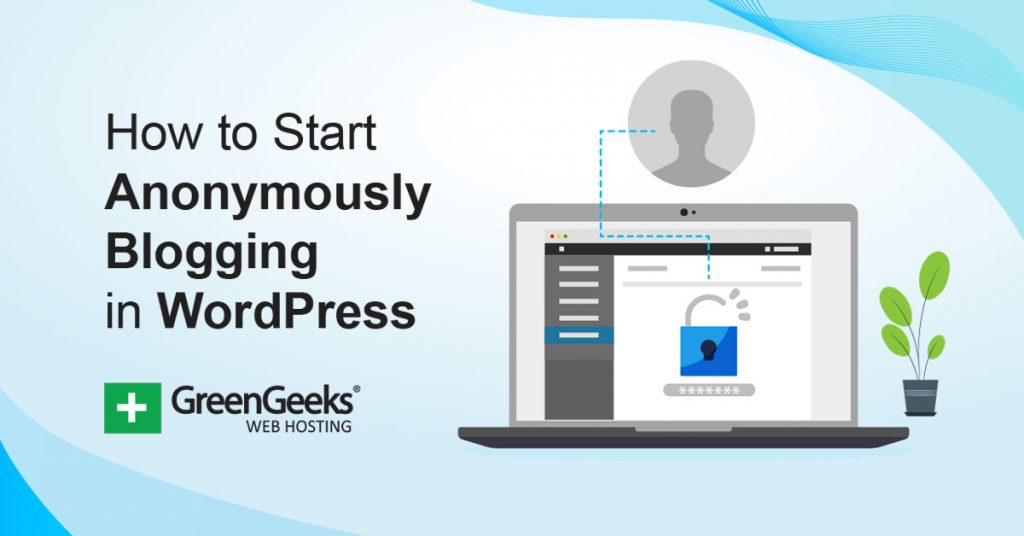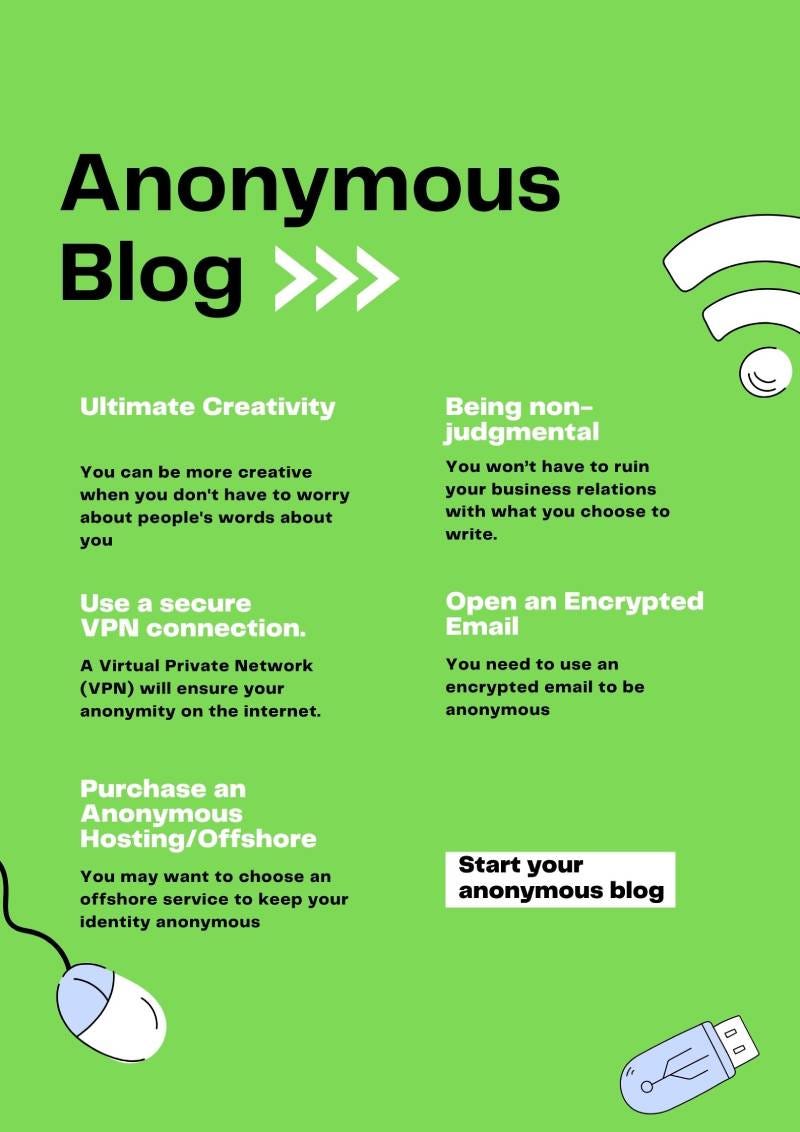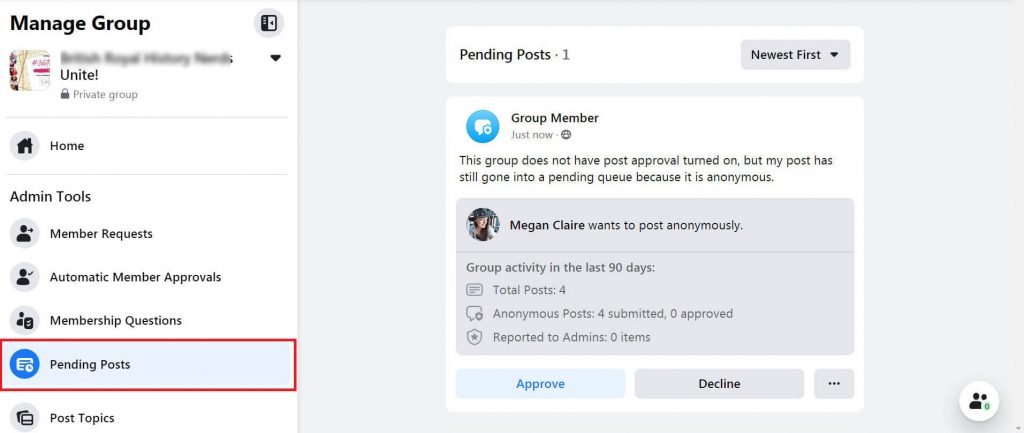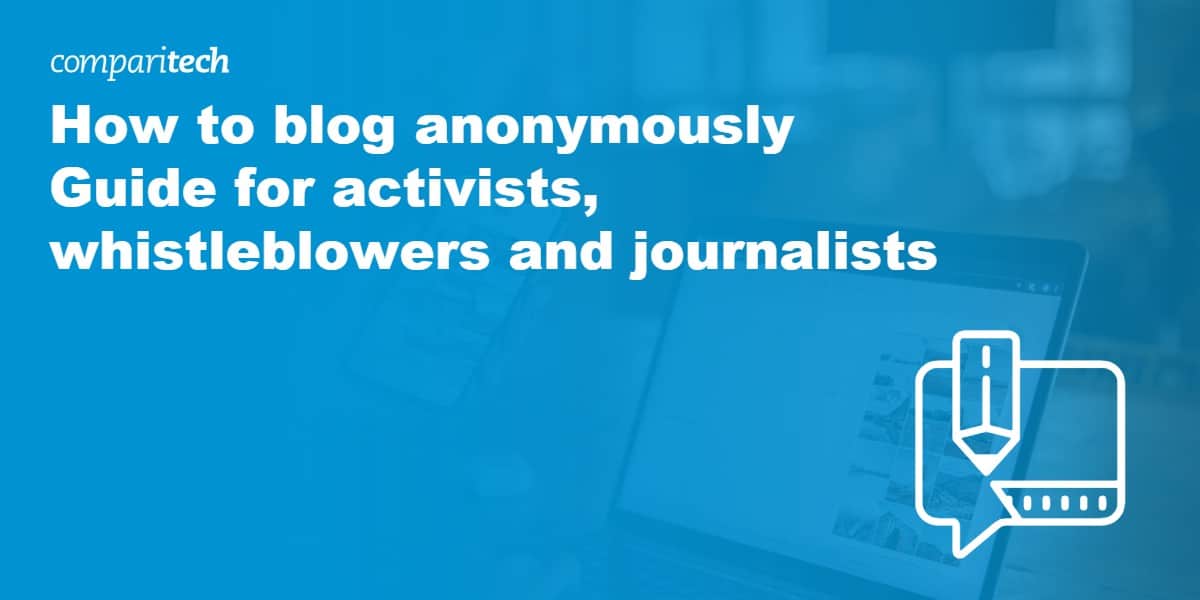Why Anonymity Matters in the Blogging World
In the vast expanse of the internet, blogging has become a popular medium for self-expression and sharing ideas. However, with the rise of online harassment, cyberbullying, and identity theft, many bloggers are seeking ways to protect their identities while still sharing their thoughts and opinions with the world. This is where anonymous blogging comes in – a way for individuals to express themselves freely without fear of retribution or backlash. But why is anonymity so important in the blogging world?
For one, anonymity provides a safe space for bloggers to share their thoughts and opinions without fear of judgment or persecution. This is particularly important for bloggers who write about sensitive or controversial topics, such as politics, social justice, or personal struggles. By remaining anonymous, these bloggers can protect themselves from online harassment and maintain their freedom of speech.
Anonymity also allows bloggers to separate their online and offline identities, which can be beneficial for those who want to keep their personal and professional lives separate. This can be especially important for individuals who work in sensitive industries or have high-profile jobs, where their online activities could be scrutinized or misinterpreted.
Furthermore, anonymity can foster a sense of community and inclusivity among bloggers. When bloggers are not constrained by their real-world identities, they are more likely to engage with others, share their ideas, and participate in online discussions. This can lead to a more vibrant and diverse online community, where individuals can connect with others who share similar interests and passions.
So, if you’re wondering how to blog anonymously, you’re not alone. Many bloggers are seeking ways to protect their identities while still sharing their thoughts and ideas with the world. By understanding the importance of anonymity in the blogging world, you can take the first step towards creating a safe and secure online space for yourself and your readers.
Choosing the Right Platform for Anonymous Blogging
When it comes to anonymous blogging, the choice of platform can be a crucial factor in maintaining one’s anonymity. Different platforms offer varying levels of anonymity, and some are more suitable for anonymous blogging than others. In this section, we’ll explore the differences between popular blogging platforms and highlight the features that support anonymous blogging.
WordPress, for example, is a popular choice among bloggers due to its flexibility and customization options. However, WordPress requires users to provide a valid email address and username during registration, which can potentially compromise anonymity. To mitigate this, WordPress offers a feature called “username anonymity,” which allows users to create a pseudonym for their blog.
Blogger, on the other hand, is a free blogging platform that allows users to create a blog without requiring a valid email address or username. However, Blogger’s terms of service state that users must comply with Google’s policies, which may include disclosing user information to third parties. To maintain anonymity on Blogger, users can create a pseudonym and use a VPN or proxy server to mask their IP address.
Medium is another popular platform that allows users to create a blog without requiring a valid email address or username. Medium’s platform is designed to be more anonymous-friendly, with features such as pseudonym-friendly registration and IP address masking. However, Medium’s terms of service state that users must comply with their policies, which may include disclosing user information to third parties.
When choosing a platform for anonymous blogging, it’s essential to consider the level of anonymity offered and the potential risks involved. By understanding the features and limitations of each platform, bloggers can make an informed decision about which platform best suits their needs. If you’re wondering how to blog anonymously, choosing the right platform is just the first step.
In addition to choosing the right platform, bloggers can also take steps to further protect their anonymity. This includes using a VPN or proxy server to mask their IP address, creating a pseudonym, and using encrypted email services. By taking these precautions, bloggers can maintain their anonymity and protect their online identity.
Setting Up a Secure and Private Blogging Environment
Once you’ve chosen a blogging platform that supports anonymous blogging, it’s essential to set up a secure and private blogging environment to protect your identity and online activity. This includes using tools and services that mask your IP address, encrypt your online communications, and protect your personal data.
One of the most effective ways to maintain anonymity while blogging is to use a Virtual Private Network (VPN). A VPN creates a secure and encrypted connection between your device and the internet, making it difficult for anyone to track your online activity or identify your IP address. When choosing a VPN, look for one that offers strong encryption, a no-logs policy, and servers located in countries with strong privacy laws.
Another tool that can help you maintain anonymity while blogging is the Tor browser. Tor is a free and open-source browser that uses a network of virtual tunnels to mask your IP address and encrypt your online communications. By using Tor, you can browse the internet anonymously and access your blog without revealing your identity.
In addition to using a VPN and Tor, it’s also essential to use encrypted email services to protect your personal data and online communications. Look for email services that offer end-to-end encryption, two-factor authentication, and a strong privacy policy. Some popular encrypted email services include ProtonMail and Tutanota.
When setting up your blogging environment, it’s also important to use strong passwords and enable two-factor authentication to protect your account from unauthorized access. Avoid using easily guessable passwords or passwords that you use for other online accounts. Instead, use a password manager to generate and store unique and complex passwords for each of your online accounts.
By taking these steps to set up a secure and private blogging environment, you can protect your identity and online activity while blogging anonymously. Remember to always stay vigilant and adapt to new online security measures and best practices to maintain your anonymity over time. If you’re wondering how to blog anonymously, setting up a secure and private blogging environment is a crucial step in the process.
Creating Content Without Revealing Your Identity
Creating engaging and informative content is crucial for any blogger, but it can be especially challenging when trying to maintain anonymity. When writing under a pseudonym, it’s essential to be mindful of the language and tone used in your content to avoid revealing your identity. Here are some tips on how to create content without revealing your identity:
Use a pseudonym: Choose a pseudonym that is not easily linked to your real name or identity. Avoid using your initials, birthdate, or any other personal details that could be used to identify you.
Use anonymous sources: When citing sources or referencing external information, use anonymous sources or pseudonyms to protect your identity. This can include using generic terms like “a source close to the matter” or “an industry expert.”
Be careful with language: Avoid using language or tone that could be used to identify you. This includes avoiding regional dialects, colloquialisms, or any other linguistic patterns that could be linked to your real identity.
Use a consistent tone: Establish a consistent tone and style in your writing to avoid raising suspicions. Avoid using humor or sarcasm that could be used to identify you.
Use images and multimedia wisely: When using images or multimedia content, be mindful of the metadata and EXIF data that can be used to identify you. Use image editing software to remove any identifying information and consider using stock images or public domain content.
Keep your content focused: Keep your content focused on the topic at hand and avoid sharing personal anecdotes or experiences that could be used to identify you. Stick to the facts and avoid using emotional language or tone.
By following these tips, you can create engaging and informative content without revealing your identity. Remember to always be mindful of your language and tone, and use anonymous sources and pseudonyms to protect your identity. If you’re wondering how to blog anonymously, creating content without revealing your identity is a crucial step in the process.
Managing Comments and Engagement While Remaining Anonymous
Managing comments and engagement is a crucial aspect of blogging, but it can be challenging when trying to maintain anonymity. As an anonymous blogger, you want to encourage discussion and engagement on your blog without revealing your identity. Here are some tips on how to manage comments and engagement while remaining anonymous:
Use moderation tools: Most blogging platforms offer moderation tools that allow you to manage comments and engagement on your blog. Use these tools to filter out spam comments, block abusive users, and moderate discussions.
Use anonymous commenting systems: Consider using anonymous commenting systems like Disqus or Livefyre, which allow users to comment on your blog without revealing their identity.
Set clear community guidelines: Establish clear community guidelines that outline what is and isn’t acceptable behavior on your blog. This can help to maintain a positive and respectful online community.
Use a pseudonym for engagement: When engaging with readers or responding to comments, use a pseudonym to maintain your anonymity.
Avoid engaging with trolls: Trolls can be a major problem for anonymous bloggers, as they can try to reveal your identity or harass you online. Avoid engaging with trolls and instead focus on building a positive and respectful online community.
Use analytics tools: Use analytics tools to track engagement and comments on your blog, but avoid using tools that can reveal your identity.
By following these tips, you can manage comments and engagement on your blog while maintaining your anonymity. Remember to always prioritize your safety and security online, and be cautious when engaging with readers or responding to comments. If you’re wondering how to blog anonymously, managing comments and engagement is a crucial step in the process.
Protecting Your Identity from Online Investigations
As an anonymous blogger, you may be concerned about online investigators trying to uncover your identity. Online investigators use various methods to track down anonymous bloggers, including IP address tracking and metadata analysis. In this section, we’ll discuss these methods and provide tips on how to protect yourself from these tactics.
IP address tracking: Online investigators can use IP address tracking to identify your location and potentially uncover your identity. To protect yourself from IP address tracking, use a VPN or Tor browser to mask your IP address.
Metadata analysis: Metadata analysis involves analyzing the metadata associated with your blog posts, such as the date and time of publication, to identify patterns and potentially uncover your identity. To protect yourself from metadata analysis, use a pseudonym and avoid publishing blog posts at regular intervals.
Device fingerprinting: Device fingerprinting involves collecting information about your device, such as your browser type and operating system, to identify you. To protect yourself from device fingerprinting, use a VPN or Tor browser and avoid using unique browser extensions or plugins.
Online profiling: Online profiling involves creating a profile of your online activity, including your browsing history and search queries, to identify you. To protect yourself from online profiling, use a VPN or Tor browser and avoid using search engines that track your search queries.
By understanding these methods and taking steps to protect yourself, you can maintain your anonymity and avoid being identified by online investigators. Remember to always be vigilant and adapt to new online security measures and best practices to stay ahead of online investigators. If you’re wondering how to blog anonymously, protecting your identity from online investigations is a crucial step in the process.
Staying Anonymous in the Face of Online Harassment
As an anonymous blogger, you may face online harassment or bullying from individuals who disagree with your views or opinions. Online harassment can be a serious concern, as it can lead to emotional distress, anxiety, and even physical harm. In this section, we’ll discuss how to deal with online harassment while maintaining anonymity.
Blocking tools: Use blocking tools to block abusive users or IP addresses from accessing your blog. Most blogging platforms offer built-in blocking tools or plugins that can help you block unwanted traffic.
Reporting mechanisms: Use reporting mechanisms to report online harassment to the relevant authorities. Most social media platforms and blogging platforms have reporting mechanisms in place to help users report online harassment.
Support networks: Join support networks or online communities that provide support and resources for anonymous bloggers. These networks can provide valuable advice, guidance, and emotional support during times of online harassment.
Anonymity-friendly platforms: Use anonymity-friendly platforms that prioritize user anonymity and safety. These platforms often have built-in features that help protect users from online harassment.
Self-care: Prioritize self-care and take steps to protect your mental and emotional well-being. Online harassment can be emotionally draining, so it’s essential to take care of yourself and seek support when needed.
By taking these steps, you can deal with online harassment while maintaining anonymity. Remember to always prioritize your safety and well-being, and seek support when needed. If you’re wondering how to blog anonymously, staying anonymous in the face of online harassment is a crucial step in the process.
Maintaining Long-Term Anonymity as a Blogger
Maintaining long-term anonymity as a blogger requires ongoing vigilance and adaptability. As online security measures and best practices evolve, it’s essential to stay up-to-date with the latest developments to protect your identity and maintain your anonymity.
Stay informed about online security: Stay informed about the latest online security measures and best practices, including updates on VPNs, Tor browsers, and encrypted email services.
Update your security protocols: Regularly update your security protocols, including your VPN, Tor browser, and encrypted email services, to ensure you have the latest security features and protections.
Use secure communication channels: Use secure communication channels, such as encrypted messaging apps and email services, to communicate with others while maintaining your anonymity.
Avoid complacency: Avoid becoming complacent about your anonymity and security. Regularly review your security protocols and update them as needed to maintain your anonymity.
Be mindful of your online activity: Be mindful of your online activity and avoid engaging in behavior that could compromise your anonymity, such as using public computers or accessing your blog from public Wi-Fi networks.
By following these tips, you can maintain long-term anonymity as a blogger and protect your identity and online activity. Remember to always prioritize your safety and security, and stay up-to-date with the latest online security measures and best practices. If you’re wondering how to blog anonymously, maintaining long-term anonymity is a crucial step in the process.








